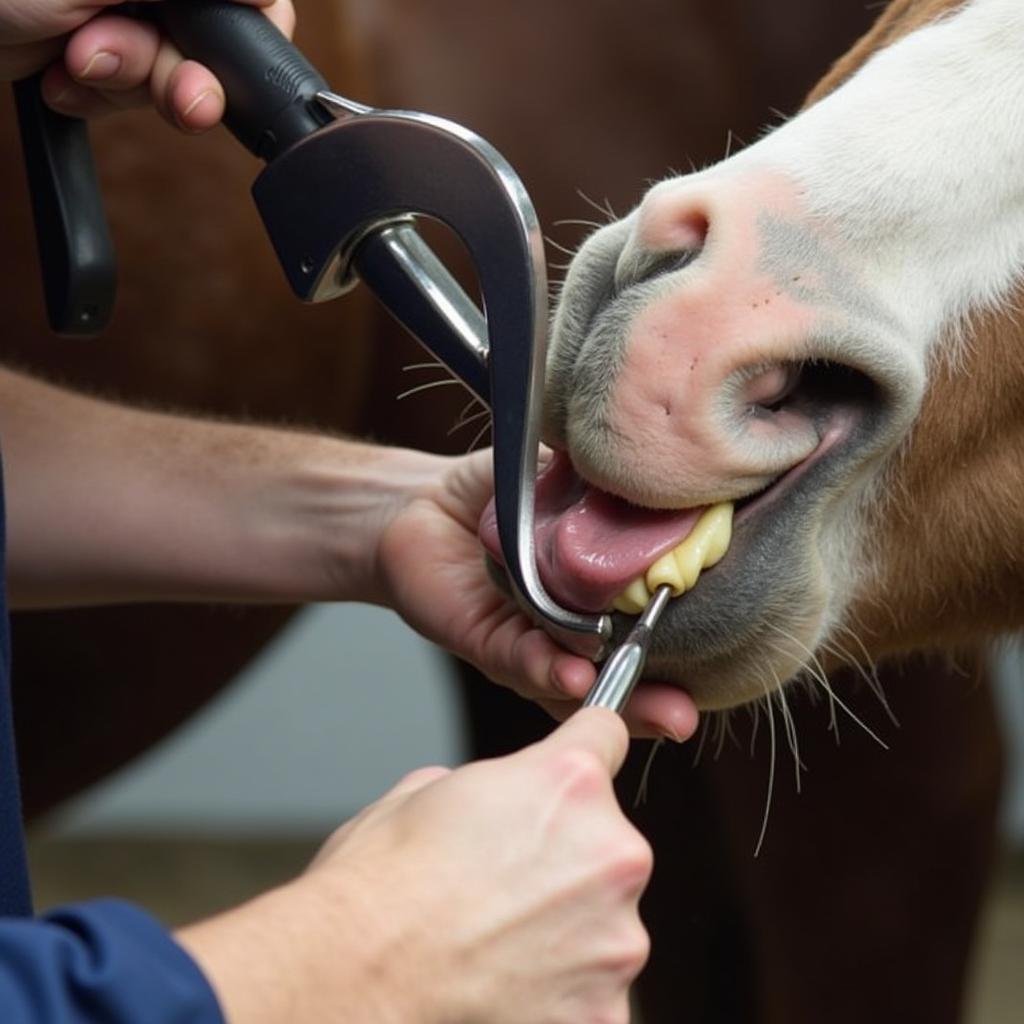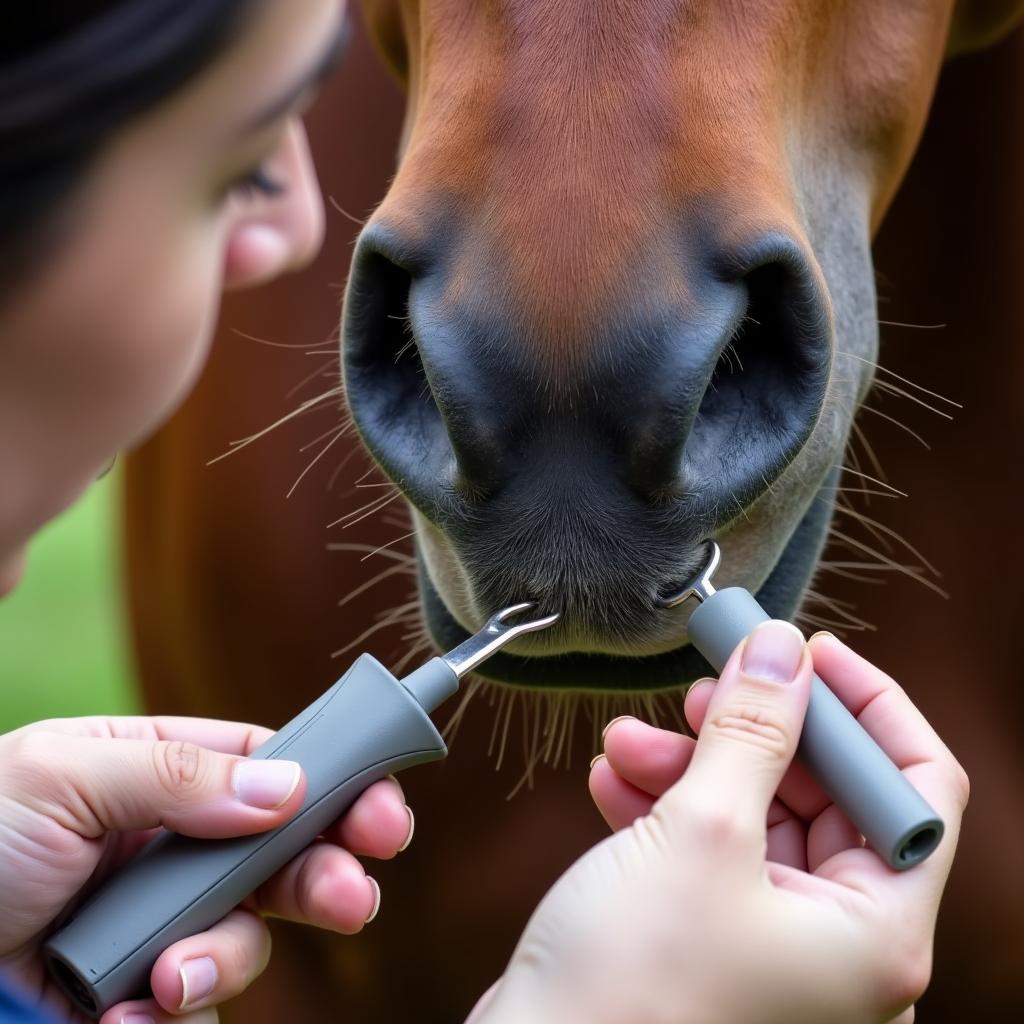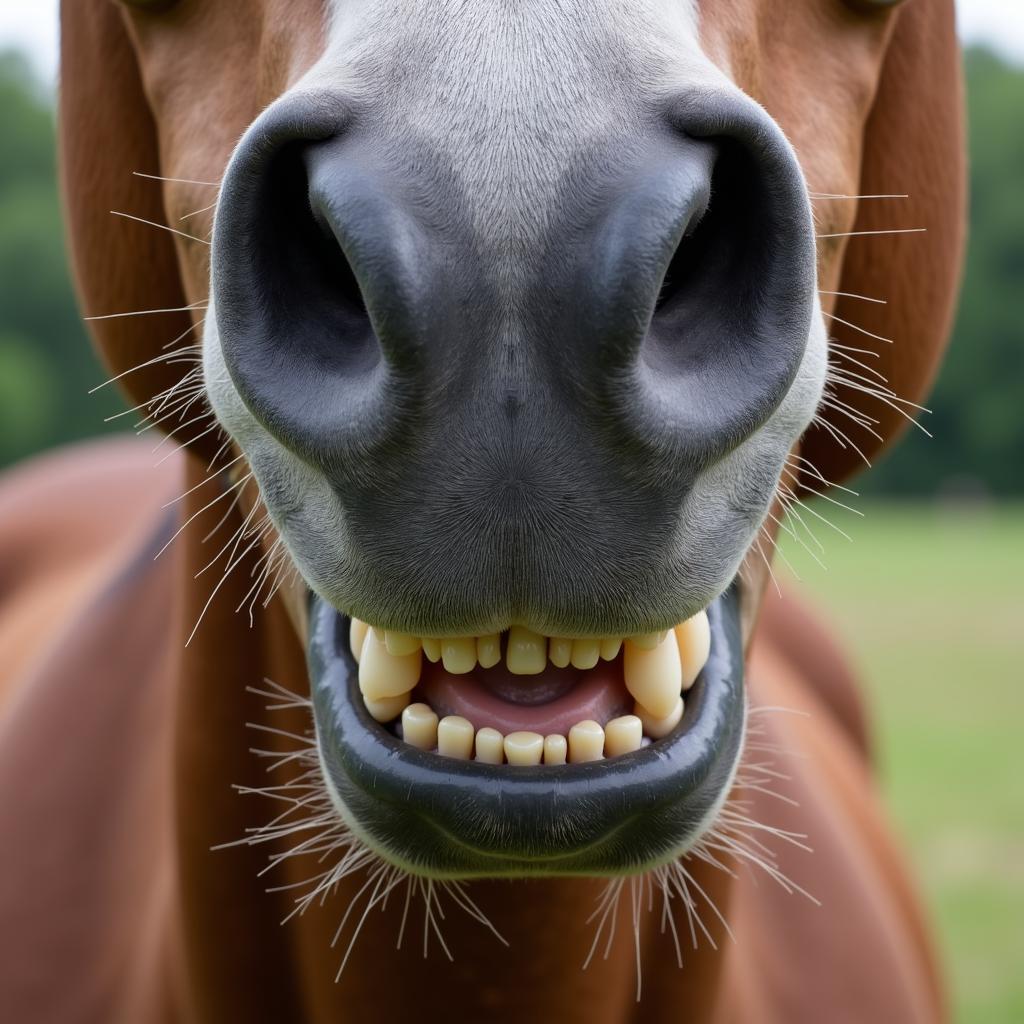Knowing how much to float a horse’s teeth is essential for their overall health and well-being. This procedure, technically known as equine dental equilibration, involves filing down sharp points and hooks on a horse’s teeth that can develop due to their unique chewing motion. These sharp edges can cause discomfort, difficulty eating, and even behavioral issues. floating horses teeth
Understanding the Importance of Equine Dental Care
Horses’ teeth continually grow throughout their lives. Their grazing habits naturally wear down the teeth, but often unevenly. This uneven wear leads to the formation of sharp enamel points, primarily on the outside of the upper molars and the inside of the lower molars. These sharp points can irritate the cheeks and tongue, making chewing painful and potentially impacting the horse’s nutritional intake.
 Horse Teeth Floating Procedure
Horse Teeth Floating Procedure
Factors Affecting the Cost of Teeth Floating
Several factors influence how much you’ll pay to float a horse’s teeth. These include the horse’s age, the severity of the dental issues, the experience of the equine dentist, and your geographical location. Costs can vary significantly from one region to another. For example, urban areas might have higher veterinary costs compared to rural areas.
The Horse’s Age and Dental Condition
Young horses, typically under five years old, often require more frequent dental care as their teeth are still developing. Older horses might develop more complex dental problems, requiring more extensive procedures. A simple float for a young horse with minor sharp points will likely be less expensive than a more complex procedure for an older horse with significant hooks or other dental issues.
Experience and Expertise of the Equine Dentist
The qualifications and experience of the practitioner play a significant role in the cost. A board-certified veterinary dentist will generally charge more than a lay dentist. However, their advanced training and expertise can be invaluable, especially for horses with complex dental problems. horse teeth float
 Equine Dentist Examining Horse Teeth
Equine Dentist Examining Horse Teeth
Location, Location, Location
Geographic location can significantly affect veterinary costs, including dental care. Veterinary services in urban or densely populated areas tend to be more expensive than those in rural areas. This difference is often due to higher operating costs and increased demand.
Typical Costs and What to Expect
The average cost to float a horse’s teeth can range from $75 to $250 or more. This price usually includes a basic oral exam, sedation if necessary, and the floating procedure itself. More complex procedures, such as extractions or addressing infections, will significantly increase the cost.
Breaking Down the Expense
- Examination: The initial examination involves assessing the overall condition of the horse’s mouth and identifying any specific dental issues.
- Sedation: Sedation is often necessary to keep the horse calm and comfortable during the procedure. This contributes to the overall cost.
- Floating: The actual floating process involves filing down the sharp points and hooks on the teeth.
- Additional Procedures: Any additional procedures, such as extractions or treating infections, will incur additional costs. teeth floating horses
“Regular dental care is crucial for a horse’s overall health and can prevent more serious and costly issues down the road,” advises Dr. Amelia Carter, DVM, a board-certified equine veterinary dentist.
 Horse with Healthy Teeth
Horse with Healthy Teeth
When to Schedule Your Horse’s Dental Appointment
Most horses benefit from having their teeth floated annually. Young horses and senior horses may require more frequent check-ups. Signs your horse may need dental attention include difficulty chewing, dropping food (quidding), weight loss, and behavioral changes such as head tossing or resistance to the bit. horse tooth abscess pictures
Conclusion: Prioritizing Your Horse’s Dental Health
Understanding how much it costs to float a horse’s teeth and why it’s important is a critical part of responsible horse ownership. Regular dental care can prevent a range of problems, ensuring your horse’s comfort and overall well-being. By investing in preventative care, you can avoid more serious and costly issues in the long run. sentinel senior horse feed
FAQ
- How often should I get my horse’s teeth floated?
- What are the signs my horse needs dental care?
- Can I float my horse’s teeth myself?
- How long does teeth floating take?
- What is the difference between an equine dentist and a veterinarian?
- Is sedation always necessary for teeth floating?
- What are the potential complications of not floating a horse’s teeth?
“Prevention is always better than cure when it comes to equine dental health,” adds Dr. Carter. “Regular check-ups can identify potential problems early and minimize the need for more invasive and costly procedures.”
Need help? Contact us 24/7: Phone: 0772127271, Email: [email protected] or visit us at QGM2+WX2, Vị Trung, Vị Thuỷ, Hậu Giang, Việt Nam.